Faculty in the Agricultural and Environmental Chemistry Graduate Group
 |
Cort Anastasio Professor Department of Land, Air and Water Resources 3146 Plant & Environmental Sciences Building Office: 530-754-6095 Fax: 530-752-1552 |
Research Interests: Tropospheric chemistry: chemistry of aerosol particles and fog/cloud drops; atmospheric reactions and cycling of oxidants, nitrogen, organic carbon, and metals; health effects of particles; sea-salt particle chemistry; snow photochemistry.
 |
Eliot Atekwana Professor Earth and Planetary Sciences 2133 Earth & Physical Sci 530-752-3690 Website |
Research Interests: Eliot Atekwana is a stable isotope geochemist who addresses basic questions in hydrology, carbon cycling, and environmental change, and with teaching interests in environmental geochemistry, isotope geochemistry, and incorporating experiential learning in courses.
 |
Daniela Barile Professor Food Science and Technology 2221 RMI North (530) 752-0976 Website |
Research Interests: Dr. Barile’s research program focuses on milk functional glycomics. Her research interests are in combining an understanding of the chemical and biological properties of food components with analytics and engineering to characterize, bioseparate and biointegrate bioactive compounds in foods. Her research spans three distinct but intersecting topics: i) analytical discovery of complex carbohydrates and peptides by advanced Mass Spectrometry, ii) development of efficient separation systems to isolate the identified carbohydrates in foods and food by-products, and iii) elucidation of the specific interaction of the carbohydrates with the human body and demonstrate the health benefits. Research in the laboratory also embraces the characterization of glycosylated bioactive components in industrial by-products to enhance commodity agriculture, food processing and develop unique functional ingredients.
 |
Deborah H. Bennet Professor Public Health Sciences One Shields Ave, TB 169 (530) 754-8282 Website |
Research Interests: Research interests focus on the fate, transport, and exposure to chemicals in both indoors and multimedia environments within the context of environmental epidemiology and risk assessment.
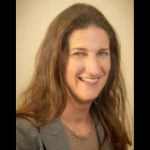 |
Louise Berben Professor Chemistry 3465 Chemistry Annex 530-752-8475 Website |
Research Interests: TBD
 |
Christopher Cappa Professor Department of Civil and Environmental Engineering 3135 Ghausi Hall 530-752-8180 Website |
Research Interests: Research in the Cappa group focuses on developing and understanding the links between chemical, physical and optical properties of atmospheric aerosols and their impacts on urban air quality and global climate through laboratory experiments and field observations.
 |
Liang Chen Assistant Professor of Wine Chemistry Department of Viticulture and Enology 530-752-0900 Website |
Research Interests: Wine flavor chemistry; Chemical diversity of grapes and wine in relation to aroma, taste, and mouthfeel; Impact of climate change on grape and wine quality; Analytical chemistry; Mass spectrometry
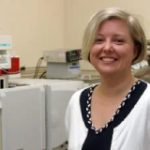 |
Cristina Davis Professor Department of Mechanical and Aerospace Engineering Website |
Research Interests: chemical exposure measures, volatile organic compound (VOC) biomarkers in exhaled breath and skin, mass spectrometry, instrumentation and chemical sensors
 |
Susan E. Ebeler Professor Viticulture and Enology 3148 RMI North Building/150 Mrak Hall (530) 752-0696 Website |
Research Interests: Research in my laboratory seeks to answer questions about food and beverage flavor, quality and health effects. We use analytical tools to study the effects of agricultural practices, fermentation, processing, and storage on composition of grapes, wines, and other foods and beverages. By linking compositional and sensory information, we can begin to understand how aroma compounds interact with each other and with food matrix components to contribute to complex food and beverage flavors.
 |
Ian C. Faloona Professor Land Air and Water Resources 3138 Plant and Environmental Sciences Building Phone: (530) 752-2044 Website |
Research Interests: Ian’s research is based on an interdisciplinary, observational approach that encompasses three principal areas: atmospheric chemistry, biogeochemistry, and the turbulent dynamics of planetary boundary layers. His group strives in particular to bridge the fields of micrometeorology and chemistry in the atmosphere and ocean. Scientific experimentation takes place on aircraft, ocean vessels, and towers using a wide array of optical and mass spectrometric analytical techniques.
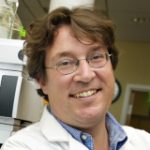 |
Oliver Fiehn Professor Molecular and Cellular Biology 1315 GBSF (530) 754-8258 Website |
Research Interests: The Fiehn research laboratory develops and uses mass spectrometry and cheminformatics to utilize metabolomic data in food, algae and agricultural research. These tools are employed to understand which parts of larger biochemical networks respond to genetic perturbation or environmental stress. Examples of current and past AgChem projects are ‘wine quality’, ‘algae biofuels’, and ‘seed germination
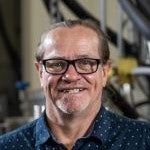 |
Glen Fox Professor Department of Food Science and Technology 2158 RMI North (530) 752-9476 Website |
Research Interests: Brewing raw materials, malting and brewing chemistry and biochemistry
 |
Annaliese Franz Professor Earth and Planetary Sciences 314 Chemistry 530-752-9820 Website |
Research Interests: Research in the Franz group combines organic synthesis, catalyst development, and chemical biology with applications for the synthesis of bioactive products, biofuels and materials. Our primary focus is to develop new reactions and catalysts for the efficient and enantioselective synthesis of bioactive and therapeutically-relevant molecules. An integral part of our research is to investigate the mechanism and molecular interactions that dictate the reactivity and selectivity of these synthetic transformations. In addition to developing new transformations for the synthesis of complex small molecules, we are interested in using chemical triggers to enhance the production of bioactive lipids and biofuels from microalgae.
 |
J. Bruce German Professor Food Science and Technology John E. Kinsella Endowed Chair in Food Nutrition & Health 212 Food Sci & Tech (530) 752-1486 Website |
Research Interests: Chemistry and biochemistry of lipids, the role of dietary fat on tissue and cell function, essential fatty acid metabolism and synthesis of bioactive metabolites, enzymology of lipid oxidation.
 |
Jenessa Gjeltema Assistant Professor Veterinary Medicine and Epidemiology (916) 808-8808 Website |
Research Interests: Effects of environmental plastic contamination on animal, human, and ecosystem health. Application, evaluation, and validation of clinical diagnostics and therapeutics in zoological species.
fatty acid metabolism and synthesis of bioactive metabolites, enzymology of lipid oxidation.
 |
Andrew Gravelle Assistant Professor Food Science and Technology (530) 752-6168 Website |
Research Interests: The Gravelle research group focuses on characterizing the relationship between composition, structure, and functional properties in food systems using a combination of physical chemistry and materials science approaches. Key areas of focus include development and characterization of oleogels (or structured oil systems) that mimic traditional fats, protein-based networks, emulsion-based systems, and barrier properties.
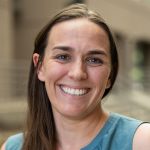 |
Christen Grettenberger Assistant Professor Environmental Toxicology (530) – Website |
Research Interests: Studies the geochemistry of diverse microbial communities and how they utilize minerals in the environment. Her research uses microbial tools to help remediate acid mine drainage, a phenomenon found widely around the world including in California, and has applications for helping to improve water quality in these environments.
 |
Jean-Xavier Guinard Professor Food Science and Technology (530) 754-8659 Website |
Research Interests: Designing sensory strategies for dietary change; optimizing the sensory quality and consumer acceptance of foods and beverages, including coffee, tea, wine, beer, olive oil, fruits, vegetables and legumes; identifying chemical and physical markers of sensory quality and consumer acceptance; predicting consumer acceptance from sensory and instrumental measurements of sensory properties using sensometrics and AI.
 |
Bruce D. Hammock Professor Entomology/Nematology 90 Briggs Hall (530) 752-7519 Website |
Research Interests: Development of pharmaceuticals based on modulation of arachidonate cascade; metabolomic evaluation of omega 3 and 6 regulatory lipids and steroids; comparative drug and pesticide metabolism; development of immunoassays based on cloned antibodies and optical transduction.
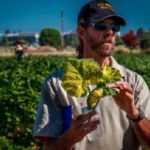 |
Bradley D. Hanson Specialist in Cooperative Extension Plant Sciences 276 Robbins Hall (530) 752-8115 Website |
Research Interests: Hanson’s research and extension program is focused on management of weeds in agricultural production systems with the goal of increasing economic and environmental sustainability of annual and perennial cropping systems. This work includes both applied and basic research approaches to integrated pest management solutions for weeds and other pests using a variety of chemical and non-chemical approaches. Much of our current research is focused on herbicide issues including: weed control efficacy, herbicide-resistant weeds, herbicide fate in soil, and crop injury resulting from herbicide drift or other routes of exposure.
 |
Thomas Harter Hydrological Sciences Specialist Hydrological Sciences 125 Veihmeyer Hall (530) 752-2709 Website |
Research Interests: Flow and transport processes in groundwater and in the vadose zone; non-point source pollution of groundwater; groundwater remediation; groundwater resources management; geostatistics; stochastic analysis; numerical modeling. Projects: groundwater quality impacts from confined animal facilities; nitrogen fluxes in a deep heterogeneous vadose zone; transport of Cryptosporidium parvum in unconsolidated sediments; stochastic analysis of salinity migration in deep aquifer systems; conjunctive management of surface water and groundwater resources; fate and transport of emerging contaminants.
 |
Marie Heffern Assistant Professor Department of Chemistry 210 Chemistry (530) 752-5563 Website |
Research Interests: Develop new and modify existing analytical methods for the determination of pesticides in the environment. These include, but are not limited to: fruits, vegetables, nuts, grains, water, air and soil matrixes. Our primary analytical tools are gas and liquid chromatography coupled to mass spectrometers (GC-MS and LC-MS/MS).
 |
Matt J. Hengel Academic Program Manager 1 Department of Environmental Toxicology 208A Sprocket Building (530) 752-2402 Website |
Research Interests: Develop new and modify existing analytical methods for the determination of pesticides in the environment. These include, but are not limited to: fruits, vegetables, nuts, grains, water, air and soil matrixes. Our primary analytical tools are gas and liquid chromatography coupled to mass spectrometers (GC-MS and LC-MS/MS).
 |
Peter J. Hernes Professor Land, Air and Water Resources – Hydrology 129 Veihmeyer Hall (530) 754-43277 Website |
Research Interests: Aqueous organic geochemistry, molecular methods development, carbon cycling, river biogeochemistry, tannin diagenesis, photochemistry and transport of lignin/terrigenous organic matter, mineral protection and interaction with organic matter, dissolved/particulate interactions.
 |
Rebecca R. Hernandez Associate Professor / Director Land, Air and Water Resources – Wild Energy Center 3142 Plant & Environmental Sciences Building Website |
Research Interests: Prof. Hernandez is an ecologist who studies chemistry in water, soils, and plants to understand the impacts of anthropogenic change and sustainability actions. Specifically, Prof. Hernandez leads research on ecological aspects of energy systems, identifying their impacts and development options to support a sustainable, just transition from fossil fuels to mitigate climate change. Current research emphasizes understanding the relationships between water quality and floating photovoltaic solar energy and the impact of restoration on soil carbon sequestration at ground-mounted solar farms.
 |
William R. Horwath Professor Land, Air and Water Resources 3226 Plant and Environmental Sciences Building (530) 754-6029 Website |
Research Interests: Stable and radioactive isotope studies in humic chemistry and microbial biomass dynamics, carbon sequestration in managed and natural ecosystems, influence of sustainable agriculture practices on long-term soil fertility and water quality, sources of nitrate in ecosystems, denitrification, root turnover and plant-microbe interactions in the rhizosphere.
 |
Norman Y. Kado Adjunct Professor Environmental Toxicology 4336 Meyer Hall (530) 752-2457 Website |
Research Interests: Bioassay and chemical analysis of environmental complex mixtures; analysis of airborne particle and vapor-phase polycyclic aromatic hydrocarbons (PAH). Occupational and environmental exposure and biological monitoring of airborne toxicants.
 |
Annie J. King Professor Animal Science Associate Dean, CAES 150 Mrak Hall (530) 752-7150 Website |
Research Interests: Prevention of lipid oxidation in poultry muscle, eggs and their products; methodologies for determination of cholesterol and its oxidized derivatives in poultry muscle and eggs.
 |
Michael Kleeman Professor Civil and Environmental Engineering 3125 Engineering III (530) 752-8386 Website |
Research Interests: Professor Kleeman’s research is focused on the study of urban and regional air quality problems with an emphasis on the size and composition of atmospheric particles and gas-to-particle conversion processes. These issues are important because research has found that airborne particles with diameters less than 2.5 microns cause adverse health effects. The size and composition of particles found in the atmosphere also determines much of the visibility reduction observed in large cities.
 |
Christina Lazcano Larkin Associate Professor Department of Land, Air and Water Resources Plant and Environmental Science Building 3144 (530) 754-1768 Website |
Research Interests:Soil ecology, biogeochemistry, plant-microbial interactions, rhizosphere ecology, plant nutrition and crop nutritional quality, trophic interactions, C and N cycling, greenhouse gas emissions from soils, use of organic waste materials as fertilizers in agriculture, sustainable soil management
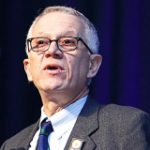 |
Walter S. Leal Professor Molecular and Cellular Biology 308D Briggs Hall (530) 752-7755 Website |
Research Interests: Molecular basis of the highly selective and sensitive insect olfactory system, in particular, the mechanism(s) involving the fast transport (and inactivation) of airborne odor molecules (pheromones and other semiochemicals) through the aqueous environment of the olfactory sensillum surrounding the olfactory receptors. Isolation, identification, and cloning of the genes encoding odorant-binding proteins and odorant-degrading enzymes and expression of proteins for structural and biophysical studies of pheromone perception. Also, I am interested in isolation, identification, and synthesis of insect pheromones and other semiochemicals.
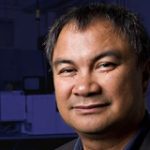 |
Carlito Lebrilla Professor Department of Chemistry Department of Biochemistry and Molecular Medicine 2645 Chemistry Annex (530) 753-2830 Website |
Research Interests: Analylsis of glycoconjugates including free oligosaccharides, glycoproteins and glycolipids in human fluid. Discovery of biomarkers for diseases including cancer and infection. Determination of components of human milk. Development of massspectrometry and liquid separation devices and methods for analysis.
 |
Gang-Yu Liu Professor Department of Chemistry (530)-754-9678 (office) Website |
Research Interests: Professor Liu’s research objective focuses on the development of nanotechnology and potential applications to bioanalytical chemistry. One important aspect of the research is the design and engineering of nanostructures which position bioreceptors and chemical reaction sites on surfaces with high precision.
 |
Mark Mascal Professor Department of Chemistry 306 Chemistry (530) 754-5373 Website |
Research Interests: The main theme of our research program is the application of synthetic organic chemistry to the study of sustainable energy and materials, molecular electronics, medicinal chemistry, and fundamental aspects of molecular structure. Current work is focused in five main areas: (1) chemical conversion of biomass into organic molecules of interest as fuels, polymers, and value-added products; (2) concise natural product synthesis; (3) design and synthesis of topologically interesting organic molecules; (4) design and synthesis of novel p-type dopants for organic semiconductors; (5) synthesis and evaluation of sm organic molecules for antioxidant, anti-inflammatory, and other beneficial health effects.
 |
Alyson E. Mitchell Professor Food Science and Technology 106 Food Sci & Tech (530) 752-7926 Website |
Research Interests: Food chemistry and toxicology; impact of dietary exposures on metabolism; application of LC/MS to isolate and identify bioactive food constituents.
 |
Elizabeth Neumann Assistant Professor Department of Chemistry 5465 Chemistry Annex (530)754-3443 Website |
Research Interests: The Neumann lab focuses on understanding the molecular and cellular architecture behind neurological diseases. The research is highly interdisciplinary and involves developing analytical tools and multimodal imaging methods for understanding complex biological phenomena. In sum, we use matrix-assisted laser desorption/ionization mass spectrometry imaging (MALDI MSI) to measure hundreds to thousands of molecular features within a biological sample without disturbing their spatial content. We can then couple this chemically informative information to other powerful technologies, such as highly multiplexed immunofluorescence , spectroscopy, or transcriptomics, to get a more complete picture of complex biological systems. We are always looking for enthusiastic and passionate students to join as well as collaborators in any field for collaboration, as these approaches are applicable to most biological systems.
 |
John W. Newman Adjunct Professor Department of Nutrition 210 Western Human Nutrtion Research Center (530)752-1009 Website |
Research Interests: The Newman research group is developing and applying mass spectrometry-based targeted and untargeted metabolomics tools to investigate metabolic responses to diet and their implications in the context of obesity and its associated co-morbidities. Active research areas include: 1) Investigating the functional implications of lipoprotein particle metabolomics structure on vascular and adipose physiology; 2) Investigating cross-talk between mediators of energy metabolism, inflammation, tissue growth and satiety; 3) Mapping the natural variance in metabolic responses to dietary challenges; 4) Investigating the impact of diet quality and weight maintenance/loss on metabolic indices of health; 5) Exploring the impact of bioactive foods including extra virgin olive oil, almonds, walnuts, and omega-3 fatty acid-rich products on cardiovascular and inflammatory physiology and pathophysiology.
 |
Tran B. Nguyen Associate Professor Department of Environmental Toxicology 4113 Meyer Hall (530) 752-5987 Website |
Research Interests: Dr. Nguyen’s research investigates how atmospheric chemistry governs the composition and properties of air pollutant mixtures, such as their radiative effects on climate and toxicological effects on human health. A primary goal is to understand the oxidation mechanisms occurring in the gas phase, aerosol particles, and fog/cloud droplets. Ultimately, these mechanisms will be integrated into computational models used to simulate the atmosphere.
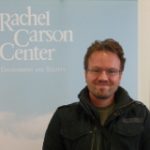 |
Sascha C.T. Nicklisch Assistant Professor Department of Environmental Toxicology 4117 Meyer Hall (530) 752-1415 Website |
Research Interests: The Nicklisch Lab is interested in understanding how and to what extent environmental chemicals can enter and accumulate in humans and other organisms. Our main focus is on studying how different types of transport proteins interact with these chemicals and if we can test for and design more “green” chemicals that are better eliminated. The lab has a traditional protein biochemistry format with some mild flavors of molecular biology and analytical chemistry.
 |
Pramod Pandrey Associate Specialist in Cooperative Extension Population Health and Reproduction Vet Med 3B (530) 752-0615 Website |
Research Interests: Controlling microbial pathogens in animal waste, food, water, and environment; Animal waste management; Dairy waste management; Carcasses management; Anaerobic digesters; Alternative manure management (composting, liquid solid separation, lagoon, solar drying); Microbial Water Quality; Hydrological Modelling; Geographical Information System; Pesticides and herbicides in water; Water quality and Analytical Chemistry.
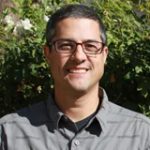 |
Sanjai J. Parikh Associate Professor Land Air and Water Resources 3230 Plant and Environmental Sciences (530)752-1265 Website |
Research Interests: Investigating how interactions between bacteria, minerals, humic substances, and contaminants in natural environments influence biogeochemical cycling and environmental quality. Examples of my research interests include: (1) determining reaction rates of contaminant oxidation/transformation at mineral and bacteria surfaces; (2) studying the fate, transport, and reactivity of agricultural antibiotics in soils located near concentrated animal feeding operations; (3) elucidating the role of bacterial surface biomolecules in cell adhesion and biomineralization/dissolution reactions; (4) investigating the role of extracellular polymeric compounds in heavy metal biogeocycling; and (5) identifying persistent degradation products of primary pollutants and determining their bioavailability.
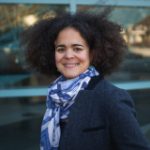 |
Jasquelin Peña Associate Professor Department of Civil and Environmental Engineering UC Davis Faculty Scientist, Earth and Environmental Sciences Area (EESA), Lawrence Berkeley National Laboratory Website |
Research Interests: Contaminant cycling, biogeochemical pathways by which metals and metalloids are transformed and moved through various states by geological and biological processes. Water quality management in ecosystems degraded by human activities and by climate change events.
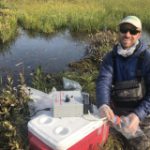 |
Brett A. Poulin Assistant Professor Department of Environmental Toxicology 4145 Meyer Hall (530) 754-2454 Website |
Research Interests: The Poulin Lab is interested in the environmental chemistry and toxicology of metal contaminants in the environments, with an emphasis on mercury. At the field scale, our research aims to identify the key processes controlling the transformations of mercury in managed aquatic systems (e.g., wetlands, reservoirs); this information informs system management to decrease methylmercury exposure at the organism level. Other research interests include (1) interactions between dissolved organic matter and natural and engineered nanoparticles, (2) organic sulfur chemistry, and (3) mechanisms of metal detoxification in organisms.
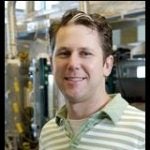 |
Ron C. Runnebaum Assistant Professor Department of Viticulture and Enology Office: 3160 RMI North Phone: (530)-752-9078 Website |
Research Interests: Dr. Runnebaum’s research has focused on catalytic conversion of biomass-derived compounds to biofuels, elucidating structure-reactivity relationships in delaminated zeolites, and catalyst design and synthesis.
 |
Samuel Sandoval Associate Professor Department of Land, Air and Water Resources Office: 135 Veihmeyer Hall Phone: (530)-750-9722 Website |
Research Interests: Dr. Samuel Sandoval Solis is an Associate Professor at the University of California Davis (UC Davis) and a Cooperative Extension Specialist in Water Resources Management at the Division of Agriculture and Natural Resources of the University of California (UCANR). In his dual role as professor and specialist, he is responsible for the California statewide outreach, education and applied research program on water resources management for UCANR; and as a professor he is responsible for fundamental research, teaching, and graduate student mentorship at the Department of Land, Air, and Water Resources in UC Davis. His research interest focuses on integrated water resources management through a holistic approach, mixing different methods, tools and processes to improve water resources management.
 |
Amelie Segarra Assistant Adjunct Professor Department of Anatomy, Physiology, and Cell Biology Office: Veterinary Medicine 3B 3205 Phone: (530)-752-7529 Website |
Research Interests: The Segarra Lab focuses on aquatic toxicology and water quality. My research assesses molecular responses to chemical exposures, particularly anthropogenic contaminants, and their impact on development, behavior, and reproduction. I use fish model organisms (Zebrafish) and non-model species of conservation concern (Pacific Salmon, Smelt) to evaluate toxicological responses and conduct studies to understand contaminant effects at sublethal concentrations.
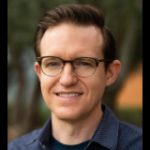 |
Christopher Simmons Professor Food Science and Technology (530) 752-2109 Website |
Research Interests: The Simmons laboratory researches techniques for improving energy and water use efficiency in food processing and agriculture. Our work aims to improve energy and water sustainability while providing benefits to growers and food processors. Specifically, we investigate methods to liberate fermentable sugars from food processing waste biomass for liquid biofuel production in addition to direct bioconversion of waste biomass into biogas. Moreover, we study the effects of minimally-treated recycled food processing effluents on soil and crops. Our research initiatives are coupled with a strong drive to educate our upcoming scientists and engineers.
 |
Gang Sun Professor Biological and Agricultural EngineeringEng.235 Everson Hall (530) 752-0840 Website |
Research Interests: Functional polymers and textile materials, personal protective materials and technologies; biological protective polymers and food safety materials, personal use and wearable sensors and materials.
 |
Dean J. Tantillo Professor Chemistry Chemistry 316 (530) 754-5635 Website |
Research Interests: Theoretical studies of bio-organic reaction mechanisms. Our research is driven by intriguing mechanistic questions and spans many areas of organic chemistry. These include enzyme catalyzed reactions, reactive intermediate promoted polycyclization (RIPP) reactions, catalyst design, physical organometallic chemistry, carbocation structures and rearrangements, pericyclic reactions, regio- and stereoselectivity of synthetically useful reactions, aromaticity, organic chemistry on metal surfaces, computational functional genomics, and computer-aided design of enzyme inhibitors.
 |
Jesús M. Velázquez
Assistant Professor |
Research Interests: Research in the Velázquez group is centered on the design of well-defined dimensionally reduced materials, ranging from monolayers, bilayers, nanocrystalline thin films, and free-standing mesoporous monoliths. The target materials have immediate applications in nanoelectronics, energy conversion devices, and environmental remediation. Characterization of the physicochemical properties of these materials involves a combination of microscopy, spectroscopy, electrochemistry, and synchrotron-based methods and will facilitate the development of structure-function correlations that will iteratively inform materials design.
 |
Spencer Walse Associate Adjunct Professor USDA Agricultural Research Service Website |
Research Interests: Current efforts focused on solving chemically-based problems in agriculture. Research activities involve the development and integration of predictive chemical kinetics, modeling strategies and field/in situ results as they relate to quantitatively understanding the interaction of molecules with their surroundings. He investigates molecules that are produced naturally as well as those that are produced by humans.
 |
Selina Wang Associate Specialist in Cooperative Extension Specialist in Cooperative Extension in the Department of Food Science and Technology and Research Director of the Olive Center Phone: (530) 752-5018 Lab page Website |
Research Interests: Dr. Wang’s research program focuses on chemical quality, purity, and nutrition parameters that occur during fruit and vegetable post-harvesting, processing and storage. The Wang lab works on (1) identifying the important chemical markers that are important for quality, purity and nutrition in food products; (2) developing robust (faster and cheaper) detection methods so they can be easily adopted by industries; and (3) modifying processing methods to improve quality, purity and nutrition.
 |
Thomas Young Professor Civil & Environmental Engineering 3113 Ghausi Phone: (530) 754-9399 Website |
Research Interests:Physical/chemical methods of soil and groundwater treatment, green chemistry, fate, transport, transformation and effects of environmental contaminants, sorption/desorption processes in soils and sediments, relationship between natural organic matter structure and sorption reactivity.
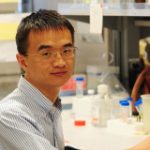 |
Guodong Zhang Assistant Professor Nutrition |
Research Interests: Dr. Zhang focuses his research on foods for health and wellness with an emphasis on the roles of bioactive lipids in colonic inflammation and colon cancer.
 |
Qi Zhang Professor Environmental Toxicology 4251A Meyer Hall Phone: (530) 752-5779 Website |
Research Interests: Current research centers on the characterization, production, and environmental fates of atmospheric condensed phase pollutants and their impacts on climate and human health. Research topics include: aerosol mass spectrometry, data analysis and interpretation, and studies of fog and cloud chemistry
